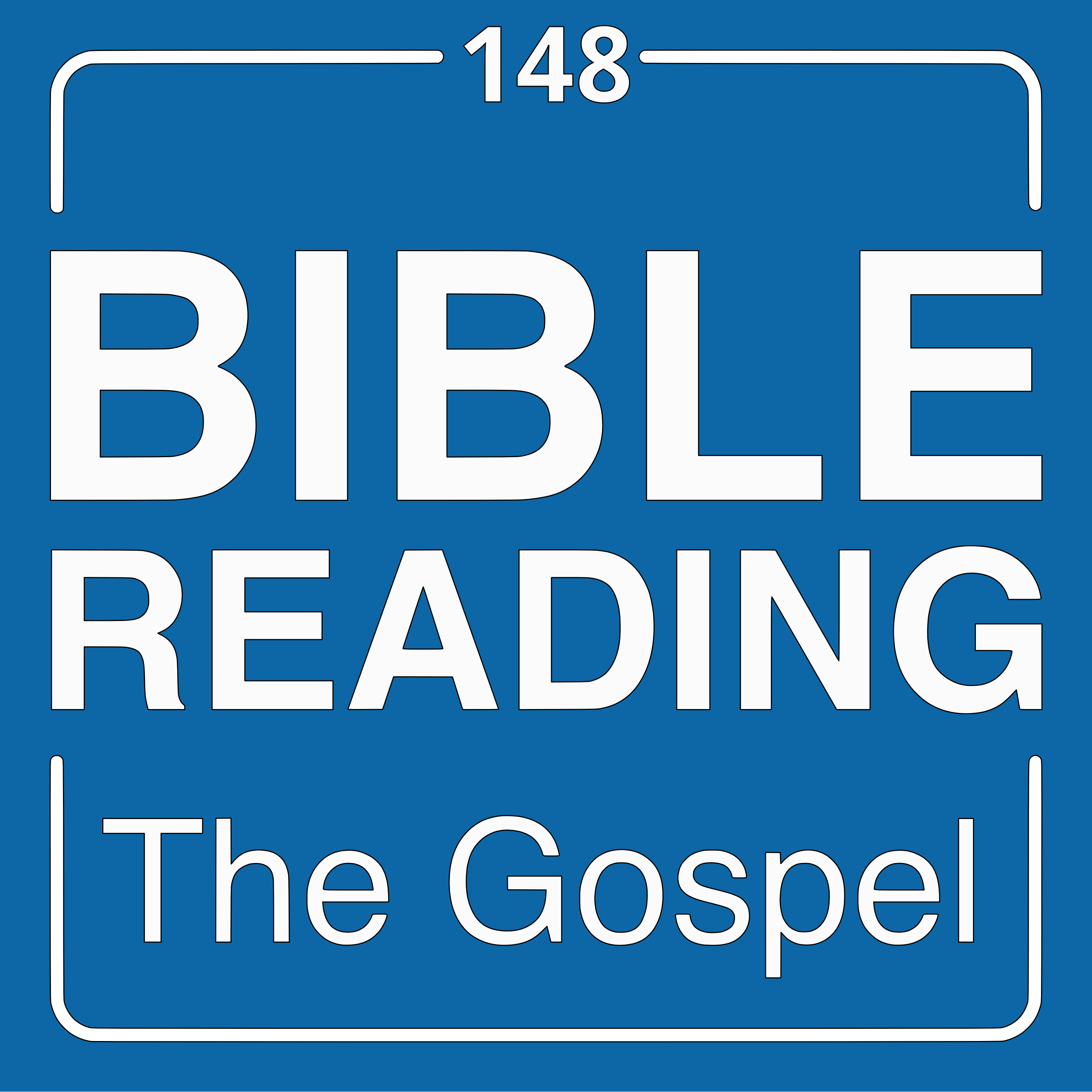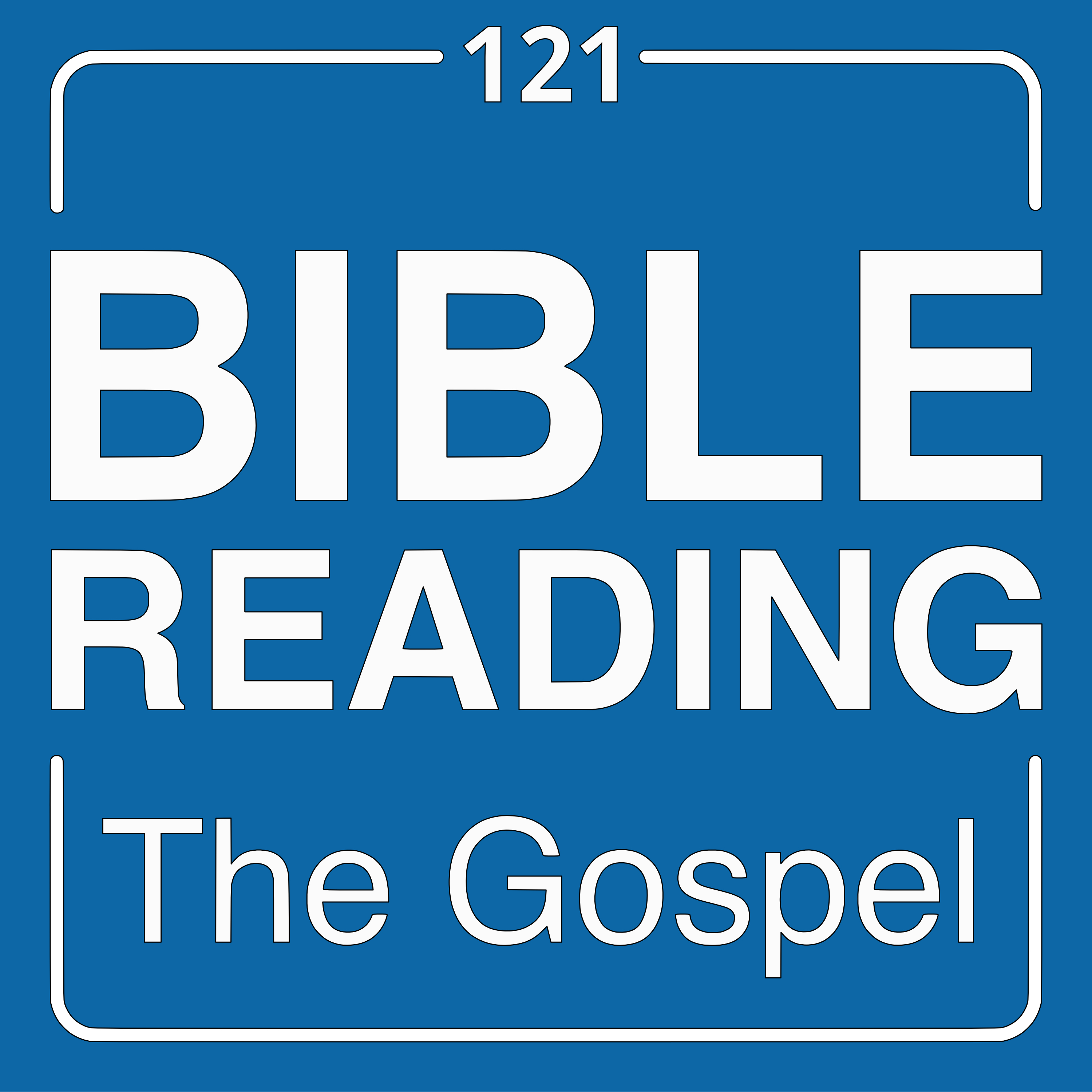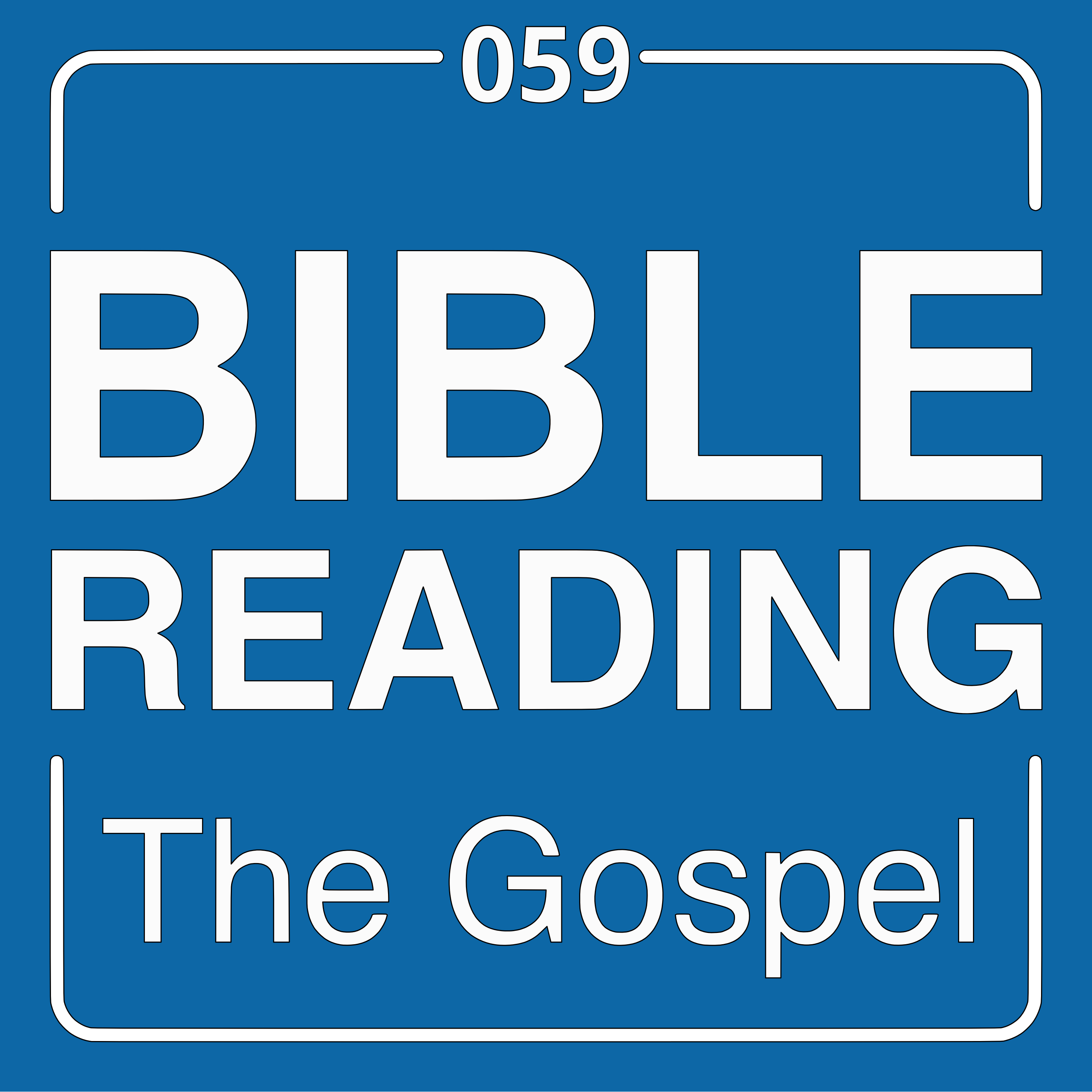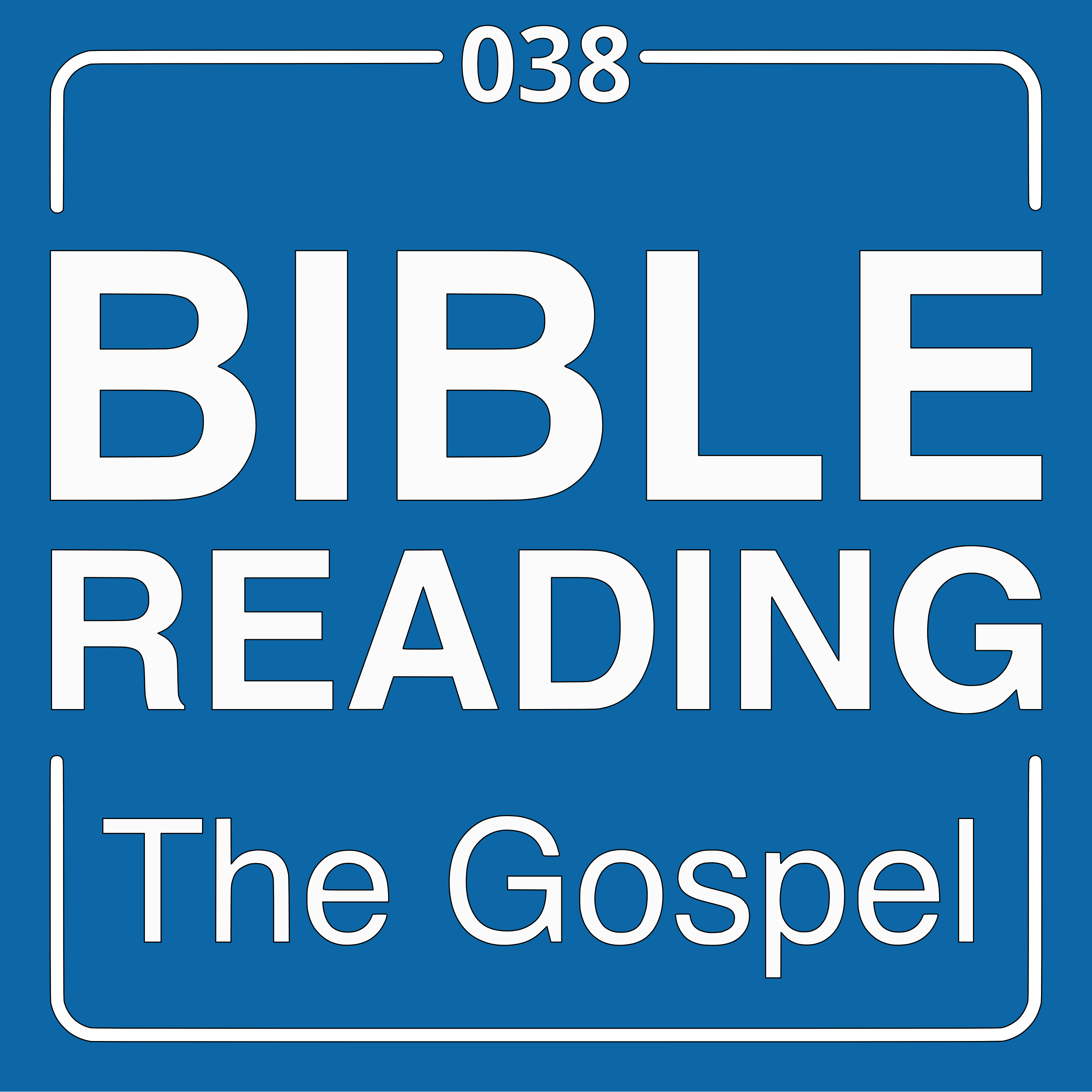Episode Transcript
[00:00:24] Speaker A: Hi, I'm Josh.
[00:00:24] Speaker B: And I'm Gabriel.
[00:00:25] Speaker A: And today on reading the gospel, we are studying the event, the two sons. This is found in Matthew 21, verses 28 through 32. Follow along with us as we read.
[00:00:39] Speaker B: What do you think? A man had two sons. And he went to the first and said, son, go and work in the vineyard today.
And he I will not.
But afterward, he changed his mind and went.
And the man went to the other son and said the same. And he I go, sir.
But he did not.
Which of the two did the will of his father?
[00:01:12] Speaker A: They said, the first Jesus said to them, truly, I say to you, the tax collectors and the prostitutes. Go into the kingdom of God before you. For John came to you in a way of righteousness. And you did not believe him. But the tax collectors and the prostitutes believed him. And even when you saw it, you did not afterwards change your minds and believe him.
This event is a continuation of the last event we covered. Where the religious leaders are challenging Jesus authority. And they asked him, under what authority do you do this? And Jesus said, well, you answer my question. Who gave John authority? And they didn't do it. So this is a continuation of that discussion there.
And we have this question. Which son did the will of the father? And as a father myself, I would like option C. You know, the son that says, yes, I would do it. And then goes and does it.
[00:02:21] Speaker B: But the parable is like a forced choice.
[00:02:24] Speaker A: Yeah.
[00:02:25] Speaker B: And it was crafted by Jesus Christ in such a way. That it will emphasize the turning of the mind, the change of the heart, the repentance.
[00:02:35] Speaker A: Yeah. Jesus is goddesse. Perfect. But he's got brilliant ways of drawing out points through these questions. What seem like simple questions. Yet get to very deep meaning. Very deep conversations of the heart. So the Pharisees answer, right. It's the first one. The one who says, no, I'm not going to do it. Then goes and does it.
And I think we have these sayings. Actions speak louder than words.
It's true in our lives. It's more important what someone does than what they say.
What they say can hurt. We can't disqualify what people say.
[00:03:20] Speaker B: Sometimes our words might be disjointed. Or disconnected from our action. In fact, they might point to opposite directions. And when we communicate this way. When we say that we are christian, but we communicate this way in a divergent way.
We kind of communicate confusion.
[00:03:42] Speaker A: So Jesus says that the prostitutes and the tax collectors. Go into the kingdom of God before the Pharisees. The religious leaders, to be honest, I don't care when I get into the kingdom of God, if I'm first or last, I'll be at the back of the line as long as I get in.
Does this mean that they're going to heaven? That the religious leaders will be there?
Is this what this is saying?
[00:04:13] Speaker B: I will connect this idea before and after with the ministry of John the Baptist, who came before Jesus Christ.
And John preached the gospel, a very practical gospel, with a very clear appeal for each category. How to repent and what repentance means for them.
And we have both the gospel story, as well as Jesus Christ himself, who said the tax collectors and the prostitutes believed John.
What was very interesting is that the repentance of these two lower or lowest moral classes among the Jews were supposed to be a sign.
A sign of the power of God, a sign of the authority of the ministry of John the Baptist. For those who later would listen to Jesus Christ. Because John the Baptist came to prepare the way for Jesus.
And he prophesied that someone greater than him, that is John, will come. So people will have to listen.
And John was very intentional about that. Remember when he said a couple of times, this is the lamb of God that takes away the sin of the world?
Two of his disciples left him John and followed Jesus Christ. And John was not mad about that. He was serious. Because he was called by God to be not only a spokesperson, but to prepare the way for the ministry of Jesus Christ.
[00:05:57] Speaker A: Yeah.
And what's interesting here is there's an expectation that we learn from other people.
So the Pharisees, if they didn't believe in John's ministry, they should have believed in the results, the fruit, the changed lives of the tax collectors and the prostitutes.
That there's an expectation for us to look around and to see others.
I know friends who we used to do things together. This was back before I became a Christian and would be a part. And then we come back together and, oh, I don't do that anymore.
And it spoke. It spoke out. When someone was able to say, I'm nothing. Doing what we used to do, you sit back and, well, why? What's going on? And it gives that thought of what changed in their lives. To bring them to a point that they don't want to do what they did.
So the tax collectors and the prostitutes, they've changed their lives. And it should be a witness to the Pharisees and the religious leaders, the people here that Jesus is talking to, that there's power in what God is doing.
[00:07:15] Speaker B: And this takes me exactly to my life and our lives. Today, we are looking for examples to see how God worked in our people's lives, and we like to emulate that. And when this happens in our lives, we should remember that God might use us as signs and miracles for others.
So this is the chain of God's revelation and communicating the message of turning around, of repentance.
And I like how Jesus Christ crafted this parable in such a way that changing your mind is being emphasized as something positive in this parable. Or put it this way, in the eyes of God, based on this parable, it doesn't matter how you start your life. It matters how you end it. It doesn't matter what you say first. It matters what you do last.
[00:08:20] Speaker A: Yes, it does. And so we can take action. That action is more important. We can take action in our lives. We can change who we are. Bye. Allowing God to work within us. So what is this passage teaching us about God?
[00:08:40] Speaker B: That's, as the wise man said in the Old Testament, better the end than the beginning.
It's more important for God how we finish than how we start. We can start low, we can start humble.
We can start on wrong foot.
What is very important is that process of changing of the mind that was coined by combining two greek words, metanoia, translated in English as repentance. Repentance is the changing of the mind that leads to a turnaround of your life, of your behavior. And that is what God is looking for.
What is he expecting from us?
[00:09:36] Speaker A: I think for me, and you kind of touched on it, God is okay to. God is big enough that he can hear our thoughts, even if they don't agree with his, that we can come to God and be honest that we're not happy about this. We don't like this. We don't want this.
We can share those feelings with God, but there comes a time where action is important, and I share this with my children.
If mom and dad ask you to do something, I expect you to stop whatever it is you're doing and to do that thing.
But once you've started doing it, you're welcome to have a conversation with us and to ask why or a question or see if there's something else that can change.
But what we want first is obedience. So if we, you know, we're telling you to stop playing in the street, get out of the street and then have a conversation.
We were playing hockey. There's no cars. Can we go back in the street?
And I think I see that kind of here.
[00:10:46] Speaker B: Yeah. And this is a very interesting concept. And I find it in the Bible, in the Old Testament, a couple of encounters between the people of Israel and God, and they talked face to face and had an agreement. The people of Israel responded. And Hebrew, it's a very interesting expression. Nazev and Shema, that means we will do and we will listen.
Somehow in our greek upbringing, we would like to listen first, to ponder, and after that to decide to act or not to act. And for most areas of life is good, but in our relationship with God, we have to act first and to listen while doing his will.
[00:11:31] Speaker A: Yeah.
So how is this passage speaking to us today? And what are we going to do about it?
[00:11:41] Speaker B: So for me, this passage is telling me that my turning around, my taking of God's word seriously, the transformation of my mind, my repentance, is a testimony for many people.
It can be a powerful sign that God is alive and active in our lives today. He's present in our world.
His power today has not diminished since the biblical times.
And God can change people.
And the greatest miracle is that God has changed manda. And when I experience this, this is a testimony for others. So my relationship with God is a powerful, living testimony for those around me.
[00:12:41] Speaker A: I think for me, it's speaking to me today that I need to look and listen.
I need to listen to your testimony. I need to look at your changed life. I need to look at the changed lives of people, people around me, not just my own, not just within this small ecosystem of my relationship with God. But I need to look for God working in places where I wouldn't expect it, in the sinners, in the tax collectors, in the prostitutes and in the people today, to see that God is out there. I think it's very easy to wall ourselves in the. To little communities and imagine that God is only with the people who are like us, the people who believe like we believe, and to create a God in our own image, in our own understanding. But when we take time to look at other people, to sit on the street corner and see the people around us, to hear them, to listen to them, we can see that God is bigger than my understanding. God is bigger than who I am. God is bigger than who I made him. I think we can learn more of the character of God.
Let us pray.
Father, we are so thankful that you reveal yourself to us.
[00:14:03] Speaker B: Amen.
[00:14:05] Speaker A: And we are thankful that we can be witnesses to other people that through our lives, they can see you're working and they can come to you.
[00:14:13] Speaker B: Amen.
[00:14:15] Speaker A: But I pray, Father, that while we surrender our lives while we allow you full access, that we won't cut ourselves off to your working in others lives, that we will allow others to witness to us, that we will allow others to share with us what is going on in their lives and how Jesus is working with them. Help us to listen. Help us to hear. Help us to act and to follow you in Jesus name. Amen.
[00:14:45] Speaker B: Amen.



